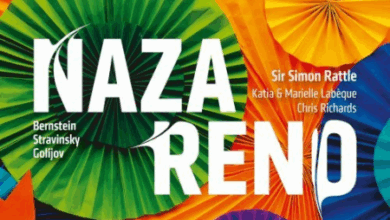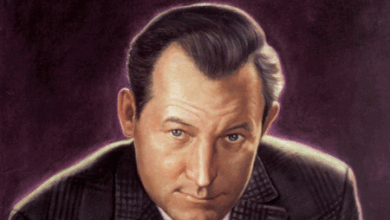VA — Classics for Creativity: Mendelssohn (2022)

FLAC (tracks) / MP3 320 kbps | Classical | 13h 12 min | 3.3 / 1.7 GB
Far from the troubled, coarse libertine that has become an archetype of the Romantic composer, Felix Mendelssohn was something of an anomaly among his contemporaries. His own situation largely one of domestic tranquility and unhindered career fulfillment stands in stark contrast to the personal Sturm und Drang familiar to his peers. Mendelssohn was the only musical prodigy of the 19th century whose stature could rival that of Mozart. Still, his parents resisted any entrepreneurial impulses and spared young Felix the strange, grueling lifestyle that was the lot of many child prodigies. He and his sister Fanny were given piano lessons, and he also studied violin, and both joined the Berlin Singakad. Carl Friedrich Zelter, director of the Singakad, became Mendelssohn\’s first composition instructor. Even in his youth, Mendelssohn moved with natural grace among the circles of influence in society, politics, literature, and art. Although he did spend some at the University of Berlin, most of his education was received through friendships and travel. Mendelssohn\’s advocacy was the single most important factor in the revival of Bach\’s vocal music in the 19th century, most famously realized in the 1829 performance of the St. Matthew Passion at the Berlin Singakadamie. He did some touring as a pianist with Ignaz Moscheles, then took the position of music director in Dusseldorf from 1833 to 1835, which involved conducting both the choral and orchestral societies, preparing music for church services and later, becoming intendant for the new theatre. Tension with the theater owner caused him to resign some of his duties, and he began looking for a new post. In 1835, Mendelssohn became municipal music director in Leipzig, where he would also conduct the Gewandhaus Orchestra. He would raise the level of the still-thriving ensemble to a new standard of excellence. In 1838, he married Cecile Jeanrenaud, enjoying an idyllic marriage and family life that were quite unlike the stormy romantic entanglements that profoundly affected such composers as Berlioz, Chopin, and Liszt. He was in demand as a conductor and spent some as royal composer and music director in Berlin, but remained committed to musical life in Leipzig. He was even able to establish a new conservatory in the city, which is still a well-respected institution. Mendelssohn was a true Renaissance man. A talented visual artist, he was a refined connoisseur of literature and philosophy. While his name rarely arises in discussions of the 19th century vanguard, the intrinsic importance of his music is undeniable. A distinct personality emerges at once in its exceptional formal sophistication, its singular melodic sense, and its colorful, masterful deployment of the instrumental forces at hand. A true apotheosis of life, Mendelssohn\’s music absolutely overflows with energy, ebullience, drama, and invention, as evidenced in his most enduring works: the incidental music to A Midsummer Night\’s Dream (1826-1842); the Hebrides Overture (1830); the Songs Without Words (1830-1845); the Symphonies No. 3 (1841-1842) and No. 4 (1833); and the Violin Concerto in E minor (1844). While the sunny disposition of so many of Mendelssohn\’s works has led some to view the composer as possessing great talent but little depth, his religious compositions particularly the great oratorios Paulus (1836) and Elijah (1846) reflect the complexity and deeply spiritual basis of his personality.
[3:57] 1. London Symphony Orchestra — III. Scherzo
[2:13] 2. Daniel Hope — 8. Hexenlied (Anderes Maienlied), MWV K 33
[4:14] 3. The Chamber Orchestra of Europe — II. Vivace non troppo (Live)
[2:28] 4. Christoph Eschenbach — No. 3 Presto in E Major \»La harpe du poete\», MWV U107
[3:41] 5. Melos Quartet — 2. Scherzo. Allegro di molto
[2:16] 6. Christoph Eschenbach — No. 1 Andante espressivo in G Major, MWV U185
[3:29] 7. Melos Quartet — 2. Scherzo
[4:47] 8. Daniel Barenboim — Mendelssohn: Albumblatt in E Minor, Op. 117, MWV U134
[3:05] 9. Mischa Maisky — Mendelssohn: Suleika, Op. 34/4
[3:20] 10. Symphonieorchester Des Bayerischen Rundfunks — No.5 Intermezzo (Live)
[3:37] 11. Melos Quartet — 4. Fuga
[2:15] 12. Christoph Eschenbach — No. 3 Molto allegro in A Major \»Hunting Song\», MWV U89
[2:33] 13. Christoph Eschenbach — No. 1 Con moto in E-Flat Major, MWV U121
[0:49] 14. Siegfried Jerusalem — 3. \»Saget es, die ihr erlost seid\»
[3:11] 15. Christoph Eschenbach — No. 6 Andante sostenuto in G Minor \»Venetian Gondola Song\», MWV U78
[2:47] 16. Mischa Maisky — Schilflied, Op. 71, No. 4 (Transcr. for Cello and Piano by Mischa Maisky)
[2:08] 17. Siegfried Jerusalem — 3. \»Er zahlet unsre Tranen\»
[3:14] 18. Mischa Maisky — Mendelssohn: Die Liebende schreibt, Op. 86, No. 3
[2:45] 19. Mischa Maisky — I. Andante espressivo (No. 25)
[3:44] 20. Melos Quartet — 3. Andante espressivo
[3:43] 21. Wiener Philharmonic Orchestra — III. Andante
[3:11] 22. Edith Mathis — No.3 Song With Chorus: \»Bunte Schlangen, zwzungt\» (Live)
[1:59] 23. Wiener Philharmonic Orchestra — 4. \»Sagt es, die ihr erloset seid\»
[3:19] 24. Christoph Eschenbach — No. 2 Allegro non troppo in E-Flat Major \»The Fleecy Cloud\», MWV U109
[2:41] 25. Christoph Eschenbach — No. 5 Allegro con fuoco in A Minor \»Folk-Song\», MWV U153
[2:32] 26. Christoph Eschenbach — No. 6 Molto allegro vivace in A Major \»La fuite\», MWV U154
[2:19] 27. Christoph Eschenbach — No. 3 Presto agitato in G Minor, MWV U144
[1:02] 28. Mischa Maisky — Theme
[0:28] 29. Mischa Maisky — Variation I
[0:26] 30. Mischa Maisky — Variation II.
[0:28] 31. Mischa Maisky — Variation III.
[0:34] 32. Mischa Maisky — Variation IV.
[0:44] 33. Mischa Maisky — Variation V.
[0:31] 34. Mischa Maisky — Variation VI.
[1:27] 35. Mischa Maisky — Variation VII.
[2:45] 36. Mischa Maisky — Variation VIII.
[1:51] 37. Daniel Hope — 5. Venetianisches Gondellied, MWV K 114
[0:48] 38. Symphonieorchester Des Bayerischen Rundfunks — No. 10b) Funeral March (Live)
[2:28] 39. Mischa Maisky — VI. Allegretto grazioso (No. 30)
[4:49] 40. Shlomo Mintz — 3. Allegro agitato
[1:15] 41. Symphonieorchester Des Bayerischen Rundfunks — No. 2 Scene — Fairies\’ March (Live)
[2:48] 42. Faure Quartett — III. Intermezzo. Allegro moderato
[6:34] 43. Mikhail Pletnev — Mendelssohn: Rondo capriccioso, Op. 14, MWV U 67
[4:27] 44. Chicago Symphony Orchestra (CSO) — No.1 Scherzo
[1:46] 45. Christoph Eschenbach — No. 2 Allegro con fuoco in B-Flat Major, MWV U181
[3:36] 46. Christoph Eschenbach — No. 3 Andante maestoso in E Minor \»Funeral March\», MWV U177
[1:50] 47. Christoph Eschenbach — No. 4 Allegro con anima in G Major \»Morning Song\», MWV U175
[3:35] 48. Christoph Eschenbach — No. 5 Andante In A Minor \»Venetian Gondola Song\», MWV U151
[1:35] 49. Symphonieorchester Des Bayerischen Rundfunks — No.11 Dance Of The Clowns (Live)
[1:30] 50. London Philharmonic Orchestra — 1. Sinfonia. Maestoso con moto
[2:09] 51. Daniel Barenboim — No. 6 Allegretto grazioso — \»Spring Song\»
[4:31] 52. Chicago Symphony Orchestra (CSO) — No.9 Wedding March
[2:17] 53. Daniel Barenboim — No. 6. Andante Con Moto in A Flat, MWV U 119 — \»Duetto\»
[3:15] 54. Mischa Maisky — Mendelssohn: Auf Flugeln des Gesanges, Op. 34, No. 2
[5:16] 55. Mischa Maisky — Mendelssohn: Lied ohne Worte, Op. 109
[4:26] 56. Melos Quartet — 3. Intermezzo; Allegretto con moto
[4:24] 57. Melos Quartet — 2. Menuetto. Un poco allegro
[4:23] 58. Academy of St. Martin in the Fields — 3. Scherzo (Allegro leggierissimo)
[4:01] 59. Melos Quartet — 2. Canzonetta: Allegretto
[4:57] 60. Wiener Philharmonic Orchestra — II. Allegro vivace
[5:54] 61. Berliner Philharmoniker — 4. Saltarello (Presto)
[4:29] 62. Berliner Philharmoniker — II. Vivace non troppo
[5:03] 63. Melos Quartet — 4. Fuga
[5:42] 64. Melos Quartet — 3. Andante
[6:06] 65. Melos Quartet — 4. Presto agitato
[5:52] 66. Melos Quartet — 1. Tema con Variazione
[4:45] 67. Kathleen Battle — No. 3. Song with Chorus \»You spotted snakes\»
[5:14] 68. Christoph Eschenbach — No. 1 Andante espressivo in E-Flat Major, MWV U103
[4:46] 69. James Levine — Finale: \»Though this house give glimm\’ring light\»[A Midsummer Night\’s Dream, Op. 61 Incidental Music]
[5:53] 70. Faure Quartett — II. Adagio
[7:07] 71. Faure Quartett — IV. Finale. Allegro molto vivace
[8:20] 72. Faure Quartett — I. Allegro molto
[6:34] 73. Faure Quartett — II. Andante
[5:30] 74. Faure Quartett — III. Scherzo. Allegro molto
[8:29] 75. Faure Quartett — I. Allegro molto
[6:17] 76. Academy of St. Martin in the Fields — 4. Presto
[13:54] 77. Academy of St. Martin in the Fields — 1. Allegro moderato, ma con fuoco
[7:39] 78. Melos Quartet — 1. Adagio non troppo; Allegro non tardante
[7:50] 79. Melos Quartet — 4. Molto allegro e vivace
[7:20] 80. Melos Quartet — 1. Allegro moderato
[6:13] 81. Melos Quartet — 2. Adagio non troppo
[6:21] 82. Melos Quartet — 3. Minuetto — Trio — Minuetto
[6:45] 83. Melos Quartet — 2. Adagio non lento
[7:03] 84. Melos Quartet — 1. Adagio; Allegro vivace
[8:13] 85. Melos Quartet — 4. Presto
[11:54] 86. Shlomo Mintz — 1. Allegro vivace
[9:37] 87. Shlomo Mintz — 2. Adagio
[5:21] 88. Shlomo Mintz — 3. Assai vivace
[9:07] 89. Melos Quartet — 1. Molto allegro vivace
[5:03] 90. Melos Quartet — 3. Andante espressivo ma con moto
[6:50] 91. Melos Quartet — 4. Presto con brio
[7:45] 92. Melos Quartet — 1. Allegro assai appassionato
[11:36] 93. Berliner Philharmoniker — Mendelssohn: Overture \»A Midsummer Night\’s Dream\», Op. 21
[12:47] 94. Wolfgang Schneiderhan — I. Allegro molto appassionato
[8:09] 95. Wolfgang Schneiderhan — II. Andante
[6:31] 96. Wolfgang Schneiderhan — III. Allegro non troppo — Allegro molto vivace
[7:30] 97. Mischa Maisky — I. Allegro assai vivace
[5:38] 98. Mischa Maisky — II. Allegro scherzando
[5:21] 99. Mischa Maisky — III. Adagio
[6:36] 100. Mischa Maisky — IV. Molto allegro e vivace
[11:49] 101. Mischa Maisky — I. Allegro vivace
[5:49] 102. Mischa Maisky — II. Andante
[5:57] 103. Mischa Maisky — III. Allegro assai
[5:32] 104. Symphonieorchester Des Bayerischen Rundfunks — No. 7 Notturno (Live)
[11:45] 105. London Symphony Orchestra — Allegro con moto
[9:58] 106. Faure Quartett — IV. Finale. Allegro vivace
[7:32] 107. Lang Lang — I. Molto allegro con fuoco
[10:53] 108. Wiener Philharmonic Orchestra — I. Andante — Allegro con fuoco
[10:38] 109. London Symphony Orchestra — I. Allegro vivace
[8:35] 110. Wiener Philharmonic Orchestra — IV. Choral \»Ein\’ Feste Burg ist unser Gott!\» (Andante con moto — Allegro vivace — Allegro maestoso — Piu animato poco a poco)
[10:44] 111. Berliner Philharmoniker — Mendelssohn: The Hebrides, Op. 26, MWV P. 7
[13:54] 112. Berliner Philharmoniker — I. Andante con moto — Allegro un poco agitato — Assai animato — Andante come prima
[11:47] 113. Berliner Philharmoniker — III. Adagio
[9:23] 114. Berliner Philharmoniker — IV. Allegro vivacissimo — Allegro maestoso assai
[7:23] 115. Academy of St. Martin in the Fields — 2. Andante
[11:23] 116. London Philharmonic Orchestra — 1. Sinfonia. Allegro
[5:58] 117. London Philharmonic Orchestra — 1. Sinfonia. Allegretto un poco agitato
[8:31] 118. London Philharmonic Orchestra — 1. Sinfonia. Adagio religioso
[7:26] 119. Margaret Price — 2. \»Alles was Odem hat, lobe den Herrn\» — \»Lobe den Herrn, meine Seele\»
[6:12] 120. Margaret Price — 5. \»Ich harrete des Herrn\»
[4:25] 121. Siegfried Jerusalem — 6. \»Stricke des Todes hatten uns umfangen\»
[4:36] 122. Wiener Philharmonic Orchestra — 7. \»Die Nacht ist vergangen\»
[4:05] 123. Wiener Philharmonic Orchestra — 8. \»Nun danket alle Gott\» — \»Lob, Ehr\’ und Preis sei Gott\»
[5:06] 124. Margaret Price — 9. \»Drum sing ich mit meinem Liede ewig\»
[6:34] 125. Wiener Philharmonic Orchestra — 10. \»Ihr Volker, bringet her dem Herrn Ehre und Macht\»
[10:42] 126. London Symphony Orchestra — I. Allegro di molto
[6:41] 127. London Symphony Orchestra — II. Andante
[6:45] 128. London Symphony Orchestra — III. Menuetto (Allegro molto)
[8:15] 129. London Symphony Orchestra — IV. Allegro con fuoco
[10:21] 130. The Chamber Orchestra of Europe — I. Allegro vivace (Live)
[10:30] 131. Emerson String Quartet — I. Allegro assai appassionato
[5:35] 132. London Symphony Orchestra — II. \»Alles was Odem hat, lobe den Herrn\» — \»Lobe den Herrn, meine Seele\»
[10:22] 133. Shlomo Mintz — 1. Adagio-Allegro moderato
[8:46] 134. Shlomo Mintz — 2. Poco Adagio
[18:22] 135. Gidon Kremer — I. Allegro
[9:10] 136. Gidon Kremer — II. Adagio
[8:59] 137. Gidon Kremer — III. Allegro molto
[7:34] 138. Berliner Philharmoniker — 1. Allegro vivace
[6:00] 139. Berliner Philharmoniker — 2. Andante con moto
[6:55] 140. Berliner Philharmoniker — 3. Con moto moderato







